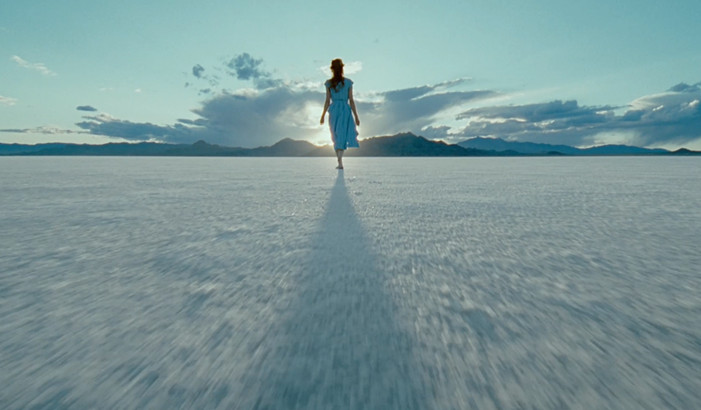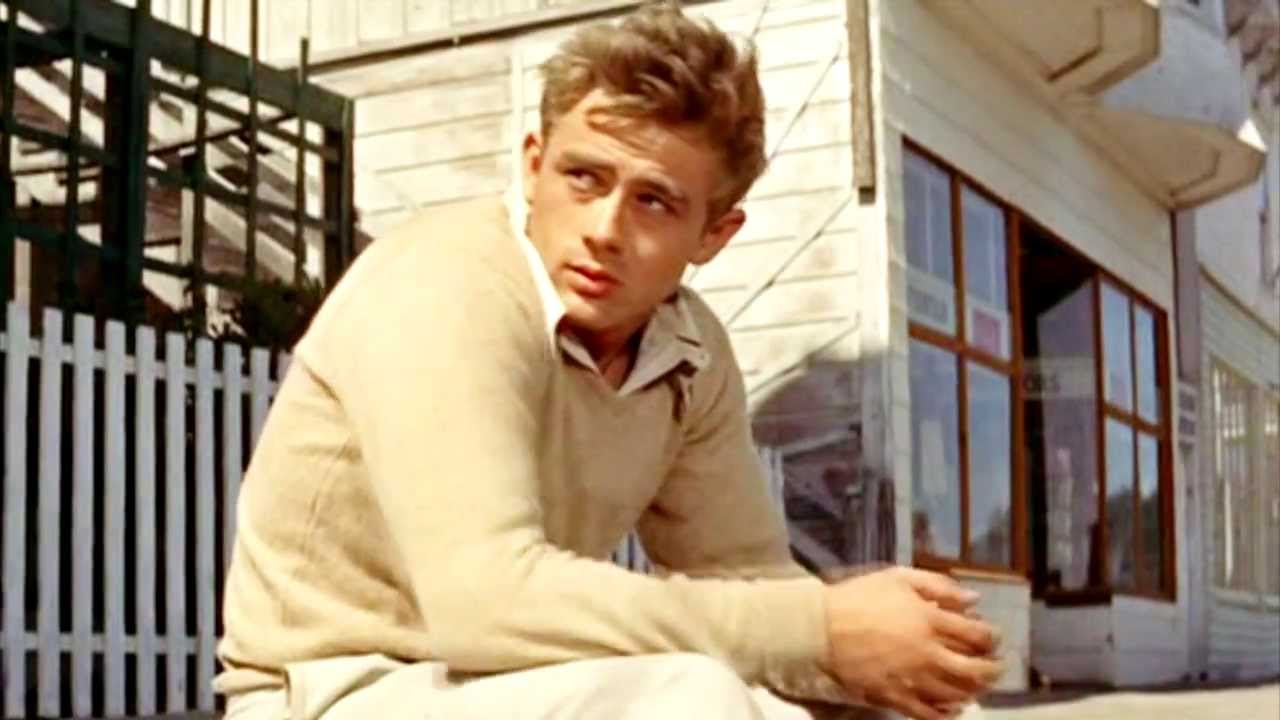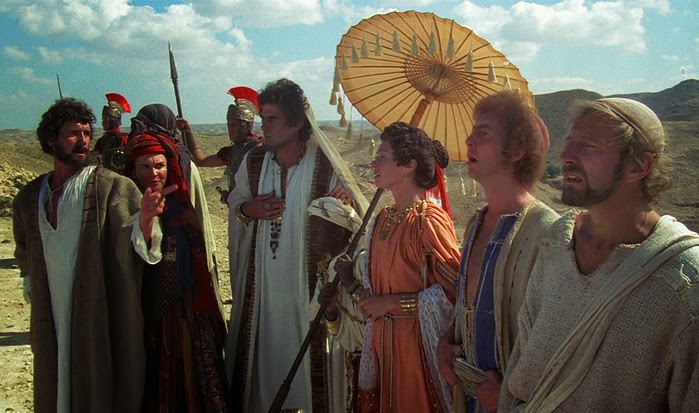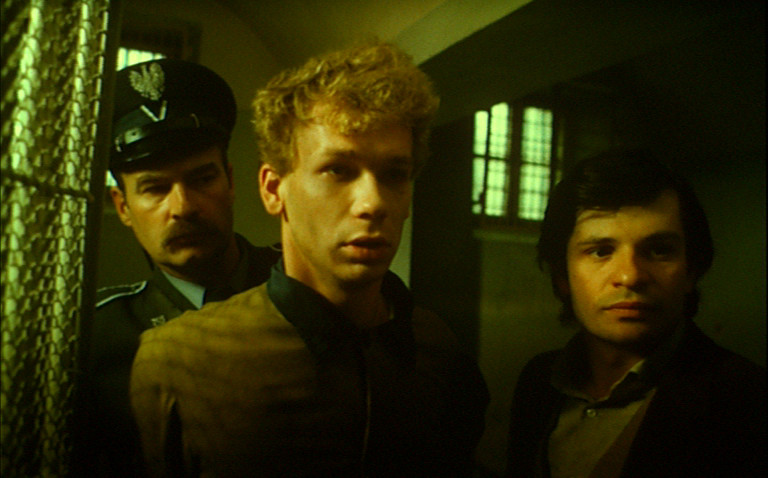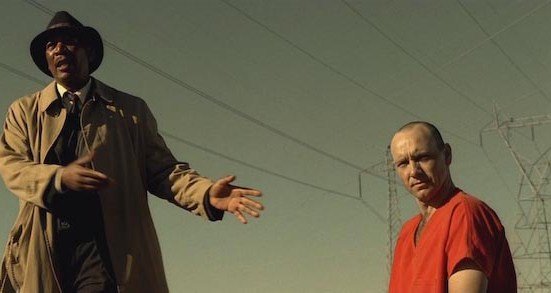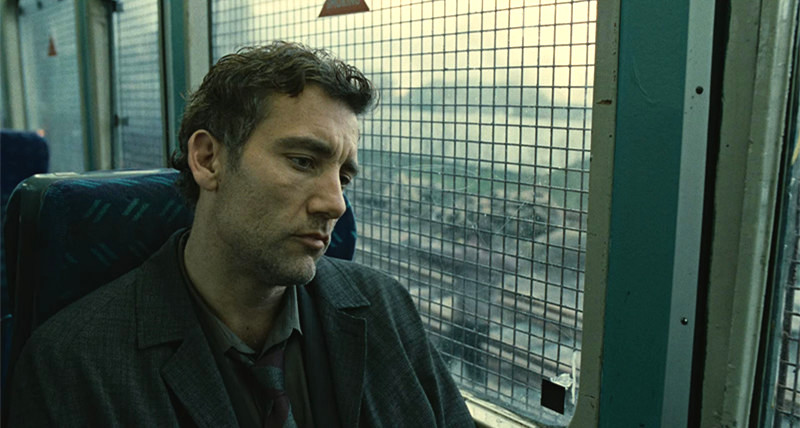It is said that in the Christian World the best book one can read is the Bible because it contains stories that are life-forming, with teachings that can serve for the rest of one’s life. Those advocating this concept argue that the book contains drama, humor, fantasy, horror and basically every genre and sub-genre one can think of.
Of course, the Bible (like Christianity or religion itself for that matter) is a very controversial writing with many challenging its authenticity and its power. Still, this is a film website so we won’t go into the eternal debate of religions or the other eternal debate of the pros and cons of the Bible. But whether you choose to believe or don’t believe in the Biblical teachings you can never say that the stories it contains won’t make great films.
Apart from the obvious religious films, they were also filmmakers that chose a different approach of these classic stories. Many directors (believers and non-believers) have found inspirations in the Biblical tales and have found ways to metamorphose them into modern stories that seemingly have nothing to do with religion.
The Bible’s famous stories like Noah and the great flood, Cain and Abel, book of Job, Sodom & Gomorrah etc, have found their way onto the big screen in various forms (love stories, police stories, friendship stories, gritty dark stories etc). The following list contains 10 great non-religious movies that are based (or loosely based) on Biblical stories. The list is chronological.
1. East of Eden (Elia Kazan, 1955)
inspired by the story of Cain and Abel
“East of Eden” is an adaptation of the novel of the same name written by John Steinbeck and released three years prior to the film. The novel represents Steinbeck’s take on the classic Cain and Abel story – the first sibling rivalry. So, naturally, the film follows the same pattern. The story takes place in 1917, in Monterey, California. Cal Trask (James Dean) is a youngster needy of fatherly love. His father Adam Trask is a farmer that favors his brother Aron.
The brothers believe that their mother died when they were children. One day, Cal discovers that his mother Kate is still alive and is the owner of a brothel in the nearby Salinas. However, he keeps his discovery in secret and does not tell to his father and brother.
When Adam decides to invest in the transportation of frozen lettuce, there is a problem on the railroad and he loses his saving. Cal contacts Kate and borrows five thousand dollars to invest in the promising bean business, to recover his father’s money and earn his love.
Meanwhile Call also falls in love with Aron’s girlfriend Abra. Cal succeeds in his business and throws his father a party in order to give him his money as a birthday gift. The reaction of Adam and Aron trigger a series of incidents with tragic consequences. Kazan’s film is fairly faithful to the novel and brings forward a new Hollywood superstar in the person of James Dean.
With “East of Eden”, one does not have to guess for both Steinbeck and Kazan admitted that the story is a rough modern retelling of the biblical tale of Cain and Abel. Cal is Cain and Aron is Abel. Their father is sternly frugal and religious, and favors Aron. Thus,
Cal is something of a hoodlum when the film begins, because of his irreverence and his tendency to run away from things. We see him being belligerent and somewhat self-destructive. Aron, in contrast, seems decorous and easy-going, as does his girlfriend Abra (Julie Harris). In other words, Cal and Aron are basically presented as two opposite characters the unwillingly and unaware compete for the same thing: their father’s love.
2. Life of Brian (Terry Jones, 1979)
inspired by the life of Jesus
The edgy humor of the surreal comedy group “Monty Python” have always appealed to a large number of people but also attracted a great deal of criticism. “Life of Brian” was no exception. The film contains themes of religious satire that were controversial at the time of its release, drawing accusations of blasphemy and protests from some religious groups.
The film is still hailed today as one of the most refreshing comedies out there and people just can’t get enough of it. The “Monty Python” gang tells the story of Brian of Nazareth (born on the same day as Jesus of Nazareth) who takes a different path in life that ultimately leads to the same conclusion. Brian joins a political resistance movement aiming to get the Romans out of Judea. In reality the separatist group does nothing but bad-talk the Romans.
Brian’s only real achievement is his painting of the political slogan “Romans Go Home!” on an entire wall in the city of Jerusalem. As a result of this heroic act Brian is hailed as a prophet and gathers his own following, who even go as far as declaring him “The Messiah” – despite his attempts to convince them that he is not. His fate is sealed however and he lives a very short life. While nothing like the life of Jesus, Brian’s life winds up having the same fate and drawing the same conclusions on life and its infinite mysteries.
The parallels to the life of Jesus of Nazareth that this movie makes are more than obvious and it will take forever to list them all. The movie is a magnificent deconstruction of historical distortion. By paralleling the life of Christ with that of an ordinary little man, the film reclaims history from symbol and myth. Its resolute rejection of divinity leads to a bleak, ironic conclusion; just listen to wonderful song at the end of the film suggestively entitled “Always Look on the Bright Side of Life”.
3. The Decalogue (Krzysztof Kieslowski, 1989)
inspired by the Ten Commandments
This television masterpiece is comprised of ten one-hour films inspired by the basic teachings of Christianity: The Ten Commandments. The series is considered legendary director Kieslowski’s best work and has been hailed as “the best dramatic work ever done specifically for television”. “The Decalogue” is in no way a piece of religious propaganda and it appeals far beyond the Christian audience.
The first episode tells the story of a university professor who trains his young son in the use of reason and the scientific method, but is confronted with the unpredictability of fate. (“I am the Lord your God; you shall have no other gods before me” and “Thou shalt not make unto thee any graven image.”)
The second episode is the story of Dorota Geller, a married woman who faces a dilemma involving her sick husband’s prognosis; her husband’s doctor, who believes in God, sweared about it in vain. (“Thou shalt not take the name of the Lord thy God in vain”).
The third episode takes place around Christmas Eve when taxi driver Janusz honors the holy day by giving presents to family members and attending Midnight Mass, unaware of what life has installed for him. (“Remember the Sabbath day, to keep it holy” and “Thou shalt not commit adultery”).
In the fourth episode, we find young Anka who has been living with her father in a strong friendship ever since her mother’s passing. One day she discovers a letter that makes her question her relationship with her father. (“Honor thy father and thy mother”)
The fifth episode is a trimmed downed version of Kieslowski’s feature film “A Short Film about Killing”. The story is about a brutal and seemingly motiveless murder that brings together a young drifter, a taxi driver and an idealistic lawyer. (“Thou dost not murder”)
The sixth episode is also a shorter version of one of Kieslowski’s feature films entitles “A Short Film about Love”. It is about a naive young man who spies on a woman and falls in love with her. (“Thou shalt not cove.”)
The seventh episode tells the disturbing story of a young woman that abducts her own child, who has been raised by her parents as her sister. (“Thou shalt not steal”)
The eight episode recounts the story of a Holocaust survivor who confronts her ethics professor who once refused to help her on the basis of the commandment “Thou shalt not bear false witness against thy neighbor.”
The ninth episode inspired Kieslowski’s later film “The Double Life of Veronique”. It is about a man who has become impotent and discovers that his wife is having an affair. (“Thou shalt not covet thy neighbor’s wife”)
The final episode is the most humorous out of the ten, although it is black humor. It tells the story of two brothers who inherit a valuable stamp collection from their deceased father and soon become consumed and obsessed with their windfall. The brothers find themselves entangled in a series of misadventures as they attempt to understand, protect, and expand their newfound fortune. (“Thou shalt not covet.”)
4. Se7en (David Fincher, 1995)
inspired by the seven deadly sins
From the very first shot of this film, one realizes that something special is about to happen in the next two hours. Detective Somerset (Morgan Freeman) wakes up in his lonely apartment preparing for one of his last days on the job. He soon finds out that he has been paired with Detective Mills (Brad Pitt), a cocky cop recently transferred to the department.
The two work together to track down a meticulous serial killer whose killings reflect each one of the seven deadly sins (greed, envy, gluttony, sloth, wrath, lust and pride). The movie’s gripping premise is highly accentuated by the surroundings of the characters. First, there is the unnamed city in which the action takes place; dark and grim with high impersonal buildings. Then there is Detective Mills’s apartment; a dark and small apartment situated terribly close to the subway.
And then there is the rain. The rain is everywhere; over the city, over the cars, over the people trying unsuccessfully to get on with their lives while the John Doe killer carefully plans his next strike. The rain implants a strange form of anxiety into the character’s hearts leaving no hope of a better tomorrow. The movie also makes heavy references to Dante’s “Inferno” but main engine of the plot are the seven capital sins that seemed to be unpardonable to some.
5. Children of Men (Alfonso Cuaron, 2006)
inspired by the Nativity story
“Children of Men” was a huge hit in its day and it is still regarded today as one of the best dystopian films of all time. Based on the novel of the same name by P.D. James, the film features intense and believable acting, innovative directing and superb camera-work (including a beautiful tracking-shot that follows Clive Owen’s character around with blood spattered on the camera lens).
The film takes place in 2027, where twenty years of human infertility have left society on the brink of collapse. More and more illegal immigrants seek sanctuary in the United Kingdom, where the last functioning government imposes oppressive immigration laws on refugees.
Clive Owen plays civil servant Theo Faron, a lonesome and troubled man who must help a very special refugee escape the chaos of the crumbling world around her. But what is so special about this woman? Well this African refugee woman named Kee is the only known pregnant woman on Earth, after a dry-spell of two decades.
The film is filled with references of both history and mythology. First of all, the only pregnant woman on Earth is black reminding everyone that humanity started in Africa. The world looks once again towards the people of the Dark Continent to start the new humanity.
The second major reference is that of the Nativity story, which is also the backbone of P.D. James’s novel. From the score (heavily influenced by religious music) to the settings of some scenes, one cannot help but think of the story of Mary and Joseph and the birth of Jesus. The woman’s pregnancy is revealed to Theo in a barn, alluding to the location of the Nativity scene.
When Theo asks Kee who the father of the baby is she jokingly states she is a virgin, and when other characters discover Kee and her baby, their immediate reaction is to respond with “Jesus Christ!” or the sign of the cross.
